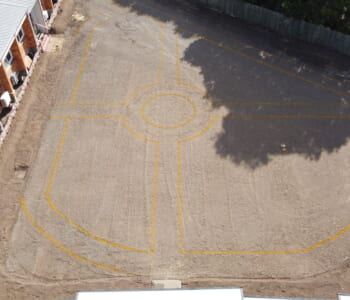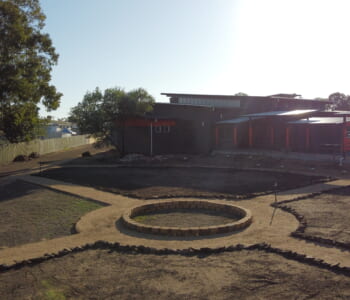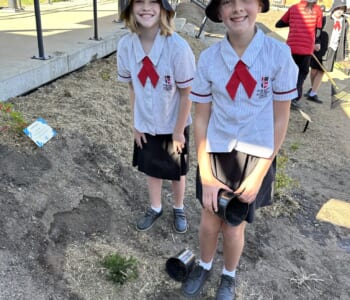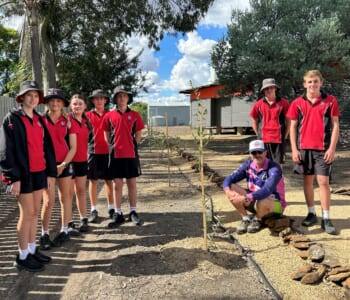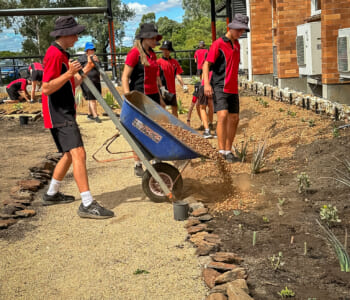Story By: Sarah Lilburne
Biblical Garden Transforms Unused Space
In 2019 an underutilised learning space in the senior area of Our Lady of the Southern Cross College Dalby was refurbished into a chapel for college prayer liturgies and gatherings.
Following the creation of this beautiful space, an opportunity arose to utilise a vacant area of the grounds to the rear of the chapel for something new. Cate Brennan, Deputy Principal of Religious Education, designed the initial plan for a Biblical Garden to transform this area, which would include symbolic plants and representations of moments in the life of Jesus that we learn about in the Bible. The intent of the garden is to create a space where students and staff can visit, sit, stroll and enjoy a place of reflection and peace.
Mrs Brennan’s design incorporates the Celtic Cross, which links the college to its Irish heritage and founders of the Sisters of Mercy, Catherine McAuley, and the Christian Brothers Edmund Rice. The Celtic Cross is also the symbol at the centre of our college crest, which reflects richness in faith and hope. The four arms of the cross represent the four directions of north, south, east and west as well as the four elements of fire, water, air and earth. The clever design has allowed distinct garden spaces to be created, which will each have their own features, including an edible garden, a rose garden, a space for native plants and desert-type plants, all of which are either mentioned in the Bible or have special religious meaning to the college.
Last year, the site was levelled and marked before rock walls and pathways were created using donated stones and materials from the local community. Later in 2023, planting began with Year 6 students combining with Deadly Ed to plant out various native plant species which partner with plaques that provide information on the use and symbolism of each plant to First Nations People.
In early 2024, a row of olive trees was planted by the Year 9 Agriculture students and the desert garden was planted by the Year 11 Study of Religion class and the 8B Praxis class. Many of the plants have been propagated by a local gardener which enhances the meaning of the garden in that the materials have been recycled and the plants have been donated. The students have collectively contributed to the early stages of the garden, and we look forward to providing opportunities for more students to be involved in the creation of each phase and the care of the Biblical Garden in the future.

